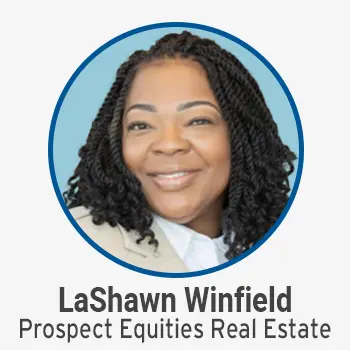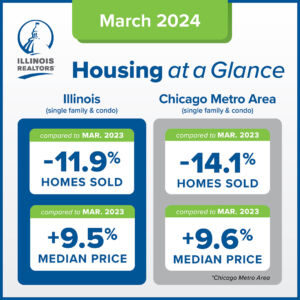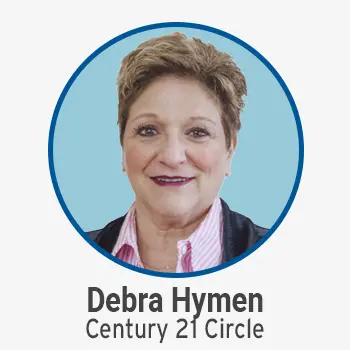Hot on the Legal Hotline: Wholesaling, Emotional Support Animals and Names in Advertising
Anneliese Fierstos
Illinois REALTORS® Legal Hotline Attorney
1. Wholesaling
Yes, it is true. The business practice of wholesaling has been brought under the purview of the Real Estate License Act (RELA) within the definition of “Broker” in the license law rewrite which became effective August 9, 2019 (P.A. 101-0357). The changes protect the consumer by making certain that wholesaling is a regulated practice in Illinois.
The Act now provides that a person must be licensed as a broker in Illinois if they have engaged in a pattern of business of buying, selling, offering to buy or sell, marketing for sale, exchanging, or otherwise dealing in contracts, including assignable contracts.
A pattern of business is defined as engaging in any one of those practices on two or more occasions in any 12-month period. In other words, a person who engages in the business practice of wholesaling needs a properly sponsored real estate license and a licensee can no longer engage in the practice wholesaling outside of the umbrella of their sponsoring broker.
2. Emotional Support Animals
For a long time now, the hotline has fielded questions about how a landlord can address a rental application that includes a request for reasonable accommodation of a disability by permitting a tenant to have an emotional support animal (ESA) or assistance animal in the residence. Until recently, the law was a bit unclear on the steps that a landlord could take to assure themselves that a potential tenant was not taking advantage of the many online services that “certify” an animal as an assistance or support animal for a nominal fee.
This year, the Illinois legislature took steps to address and clarify the responsibilities of both a landlord and a tenant with respect to applications that include a request for accommodation for an ESA or assistance animal. (HB3671, New P.A. 101-0518, eff. 1/1/20)
Housing providers are now given the authority to ask for more information than a certification letter to verify that an ESA or assistance animal is required for the tenant applying for housing. Under the new Act, the housing provider who receives an application from a person to make an exception to a no-pet policy may require the applicant to produce reliable documentation of the disability and the disability related need for the animal. In addition to the new Act, housing providers will still need to take into consideration federal Fair Housing guidelines.
It’s important to note that under the new Act, housing providers should not ask for an applicant to produce reliable documentation of a disability in cases in which the disability is readily apparent or already known to the housing provider. However, in other cases in which a disability is not readily apparent, the provider may ask for documentation. In those cases, the legislature has placed clearly defined responsibilities upon the applicant requesting the accommodation. Upon request of the housing provider they may need to produce written confirmation from a person with whom they have a therapeutic relationship a description of the disability related need for the assistance animal.
The new Act has gone even further in protecting the housing providers from unnecessary request for accommodation by defining the therapeutic relationship, and making it very clear that a certificate from an online “pop-up shop” that cannot verify they have done a meaningful assessment of the applicant’s disability related need will not suffice.
In addition, the new Act protects the housing provider by allowing them to deny an application if accommodating the request imposes an undue financial or administrative burden or requires a fundamental alteration to housing operations.
Public Act 101-0518 goes into effect on Jan. 1, 2020.
3. Advertising
One of the hottest topics on the hotline is the addition of language to the Real Estate License Act (RELA) regarding advertising. The new language addresses team names and individual broker names, requiring that the sponsoring broker’s name “shall be at least equal in size or larger than the team name or that of the individual.”
This change is meant to protect the public from any confusion about who or what is the licensed entity with the Illinois Dept. of Financial and Professional Regulation (IDFPR). In evaluating signage, licensees should look at their signs and other advertising with a reasonable eye and evaluate whether the sign or other media accurately represents who or what is the sponsoring brokerage company.
More information on the specifics of this section are likely to be addressed in the Administrative Rules which are in the drafting stages and should be released in the next several months.
About the writer: Anneliese Fierstos is the Illinois REALTORS® Legal Hotline Attorney.





 Create professional development programs that help REALTORS® strengthen their businesses.
Create professional development programs that help REALTORS® strengthen their businesses.
 Protect private property rights and promote the value of REALTORS®.
Protect private property rights and promote the value of REALTORS®.
 Advance ethics enforcement programs that increase REALTOR® professionalism.
Advance ethics enforcement programs that increase REALTOR® professionalism.
 Protect REALTORS® by providing legal guidance and education.
Protect REALTORS® by providing legal guidance and education. Stay current on industry issues with daily news from Illinois REALTORS®, network with other professionals, attend a seminar, and keep up with industry trends through events throughout the year.
Stay current on industry issues with daily news from Illinois REALTORS®, network with other professionals, attend a seminar, and keep up with industry trends through events throughout the year.


